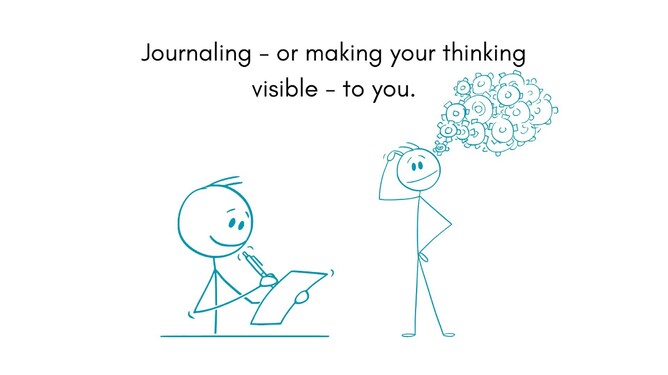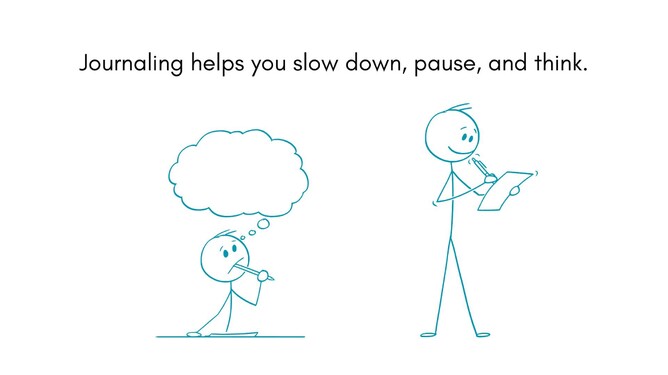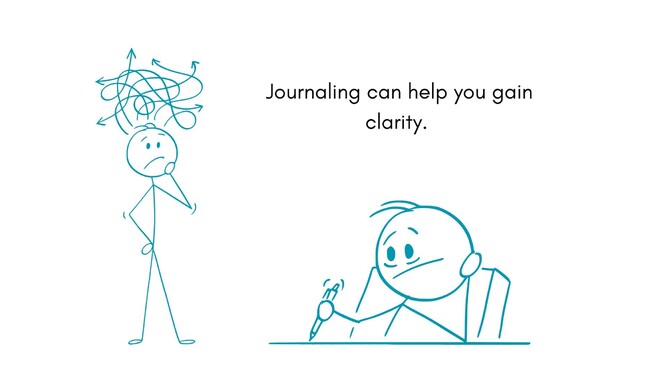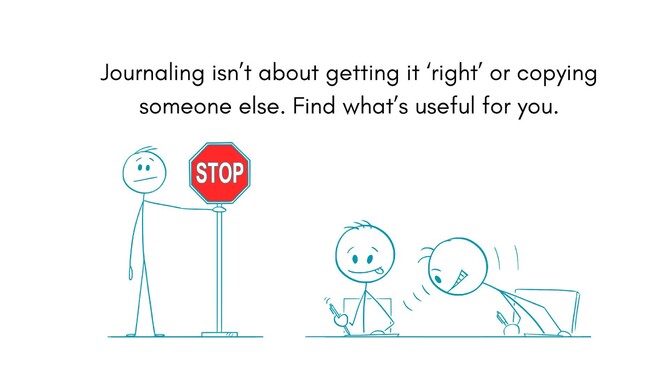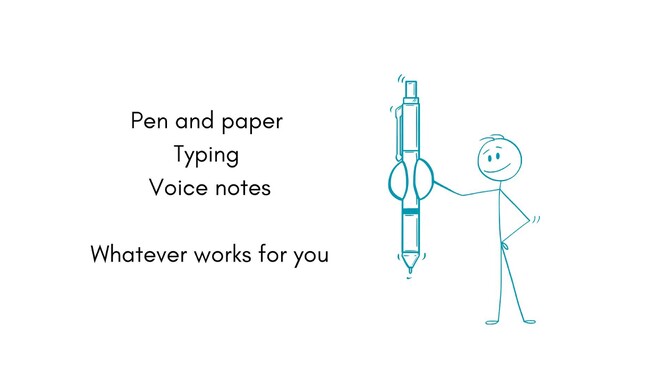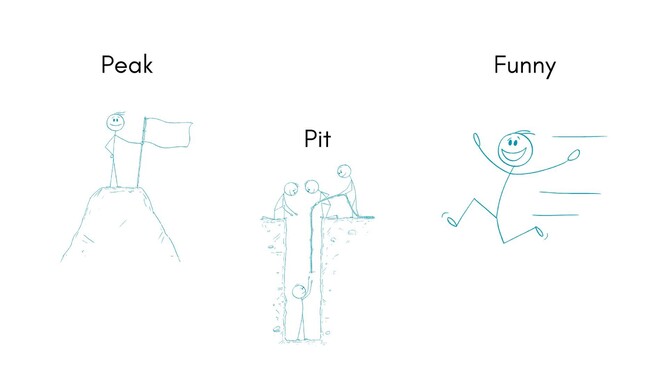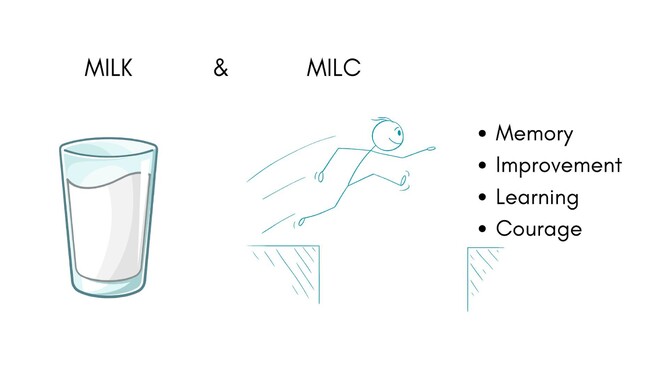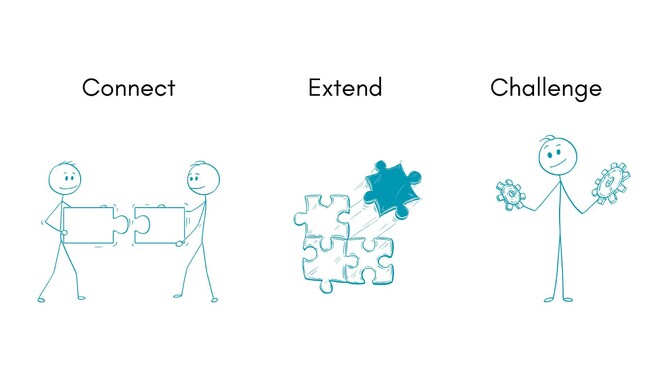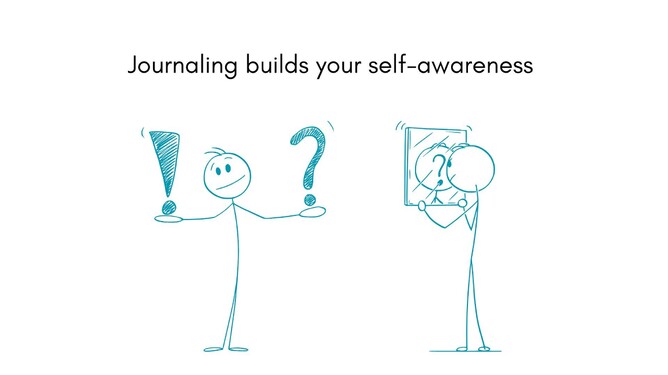Figuring out how to journal can be quite difficult. Every now and then, I have conversations with people about this, and inevitably, someone will say, ‘Yeah, journaling, I’ve always wanted to do that, but I just never really got into it.’
Journaling isn’t just for writers. Many athletes use journals to track their progress, write down their thoughts, celebrate successes, and process disappointments. Scientists, researchers and entrepreneurs use it to keep track of ideas. Many others use it, too. You might not be a writer, but perhaps journaling is still something you'd like to try. Maybe this blog will help; maybe it won’t. In either case, you’ll have learned a little more about journaling.
When I was a kid, I loved the idea of a diary. I didn’t actually keep a diary; that seemed like waaaay too much effort. What do you mean I need to write this every day?! So, I liked the idea of looking back one day at the thought I had written down years ago. But to be able to do that, you need to do some of the actual writing right now…
Now, I write every day. Sometimes just a few words. Depending on what I’ve got going on, life can be fairly busy. During those times, I use my notebook to write down short lists of things I want to get done or things I don’t want to forget. Other times, I write for half an hour or so to reflect on events, things that have happened to me, trips I have been on, stories I want to hold on to, blog ideas, new information I have learned, concepts or ideas I am curious about. I also write down goals and ambitions and the steps I need to take to get there. Though that is perhaps a topic for a different blog.
Unsurprisingly… I love going back through my notebooks to look at what I was thinking about a year, two years or five years ago.
But back to some of the barriers to journaling I keep hearing about:
I don’t have time
Oh journaling… I was meant to do that… now let me procrastinate
What is the point if I can’t do it perfectly and if my handwriting won’t look neat and tidy…
I only think boring things… or I have nothing to say… why should I write a journal?!
There are more, but these are the ones I hear about most often. So if you recognise yourself in them, you are not alone. :) I’ll come back to them in a bit.
But first, let’s look at why journaling is effective or useful. There are lots of benefits to making time to journal. Here are a few:
Improved self-awareness: by writing your thoughts down, you slow down and you have a chance to get to know yourself better. The slowing down of journaling should not be underestimated. We live fairly fast-paced lives, often thinking about or working on multiple things and projects. When you journal by hand, your ideas and thoughts and feelings will only become visible on the page at the pace at which you write or draw. It brings you into the here and now. In a way it forces you to be present. So while you are at it, listen to and feel how the pen or pencil moves across the page.
Improved emotional awareness: taking note or journaling about how you feel increases your awareness of your own emotions. It also allows you to explore what led you to feel this way. Journaling allows you to notice patterns. It creates distance between the cause and your reaction and allows you to look back at the situation. You can reflect on how you got into the situation in the first place and whether or not how you reacted in the moment is how you want to react or respond in the future. - practise self-compassion: You may not have reacted exactly as you would have liked to. That’s ok, and human. Learning about yourself takes time. Try again next time.
Improved memory and creativity: Handwriting is an effective way to learn and commit ideas and concepts to memory. It is more effective than typing the same ideas. Equally, if you have many ideas each day, but you keep forgetting them after a few minutes, a journal can be an effective way of keeping your ideas. You can always come back to them later and develop them further then. (This is how many of these blog posts start. I have a vague idea, and I write that down in my notebook. Sometimes it’s only one word. Sometimes I have one or two full sentences in my head that I want to include. I write them down. When it comes to sitting down and researching for and writing the blog posts, I no longer have to start from scratch. The idea is already there, and all I need to do is flesh it out a bit.)
Boost for your self-confidence: If you keep track of things you have completed or achieved and you look back at all the little steps you had to take to work towards that bigger goal, this can be incredibly satisfying. It can also boost your well-being. Again, there is some good evidence that gratitude journals work well because they focus your attention on the positive events and interactions in your life. Journaling can help you sleep better, especially if you feel overwhelmed with thoughts going round and round in your head. Taking a few minutes to write those down before you go to bed can help you find more restful sleep.
That’s great… I hear you say… I know the benefits, but how do I actually do it? And what do I write?
Find your own way of doing it. You might need to experiment a little. To be honest, I am a bit of a stationery nerd. So I like to have a nice notebook and a nice pen to write with. But you don’t need either of those. A plain notebook and a cheap pen will do… because if we are honest…
Buying a journal isn’t journaling.
Buying a nice pen to write in your journal with isn’t journaling.
Reading this blog about journaling isn’t journaling.
The only thing that is journaling is doing it:
Writing or drawing the things that are in your head.
So, let’s look at how you overcome the roadblocks:
'I don’t have time.'
Make time. It’s obvious. And it’s simple. Not necessarily easy. But it is simple. If you want to journal, make time for it. 5 minutes a day or even a week is enough.
You procrastinate…?
Write it down. If you are not sure where to start and that leads you to procrastinate, write that down. ‘I was meant to start journaling today and instead I cleaned the fridge…’ And just like that, you have started journaling. Do this for a while, and you will learn a lot about what you do to procrastinate, which will increase your self-awareness. (You are also welcome to clean my fridge first, and then write about that ;) )
'I don’t have perfect handwriting, and I won’t like it if it isn’t neat and tidy…'
Well… It isn’t about being perfect. The thoughts we have daily aren’t neat, tidy, and ordered either and your journaling will likely reflect that. If you want your journal to be aesthetically pleasing, by all means, make it as pretty as you want, but don’t let a couple of crossed out words and letters and a few untidy pages stop you from journaling. Also… even though I’d recommend journaling by hand, you can actually do this in many different ways. You can use the notes app on your phone. Many people I know use voice notes to capture their thoughts. Choose the medium that works best for you.
'I don’t have anything interesting to say…'
Well… you don’t know that yet. Like any skill, journaling skills and routines take time to develop and hone. The more you do it, the more you will find yourself having things to say. The first version of anything is usually pretty average. So get started and keep going.
Remember that you are journaling for you. Only you. No one else will see this unless you choose to share it with them. Experiment. Find what works best for you.
If you still find yourself stuck and unsure how to start, here are some of my favourite journal prompts. I use these on rotation. So usually, I’ll use each one for a month or two and then I’ll change it up. This isn’t a deliberate change after a particular time, I just find I want a little change after about that period of time.
If you are stuck, try these:
Daily 6 (yes, you can do this weekly, too):
Today, I am grateful for…
My most important task/thing to do today is…
The most story-worthy moment yesterday was… (I love this one. It is great to collect little moments that were funny or that you want to remember, and that would otherwise slip out of your memory.)
How am I feeling right now? (You can use a score ../10 for this or words)
What is currently working well? (Why do I think it is working?)
What could be better? (What would better look like?)
This one is really quick and simple.
Daily 3: Peak - Pit - Funny
What was the peak today = what was the highlight?
What was the pit today = what was the lowlight or the worst moment?
What was the funniest moment today?
A useful reflection that focuses on maintaining a growth mindset and supports building resilience is MILC. You can do this yourself or with your kids and other loved ones. It’s a good one for the dinner table - but you can obviously also use it in a journal^.
A useful way to remember it is this: We need MILK with a ‘K’ to grow strong bones, and we need MILC with a ‘C’ to grow strong minds:
M - What is your favourite memory of today?
I - How have you improved today? Where have you got better?
L - What have you learnt today?
C - How have you been courageous today?- I love this one because it reminds us that courage is a skill. And, as such, it has to be practised. It’s not something we just naturally have or don’t have - we have to build it, like a muscle. The other parts of this reflection build a growth mindset because the questions assume that you will be making improvements and that you will learn things. Doing this one with others can be fun.
If you are journaling after some professional development, after an important conversation, or after doing something for the first time, you can use this one:
I used to think…
Now I think…
I like this one because it really makes your thinking visible, and it focuses on how your thinking changes over time. This makes it obvious that our ideas and thoughts are not fixed. I use this with athletes sometimes after they have experienced something unexpected: a major injury, an unexpected result, or when they have done something for the very first time. It often uncovers what they thought before they personally experienced that particular thing, and it often contributes to broadening perspectives and increasing empathy for others in a similar situation.
Another one I like is Connect, Extend, Challenge… This is a thinking routine which focuses on creating a connection between your prior knowledge and any new information. I have used it with students to reflect on what they have learnt. It was developed as part of the Visible Thinking project at Harvard Graduate School of Education. It is really useful to develop critical thinking skills².
Connect - How does what you have learnt connect to what you already knew?
Extend - How does what you have seen or learnt extend your thinking? What else has it made you think about?
Challenge - What is challenging you about this? What do you find confusing? What do you still have questions about? What do you wonder about?
There are many other reflection tools and structures you can use for journaling, so if none of these feel right for you, please don’t make that the reason to give up. Instead, pick and choose the questions you find more interesting and relevant to you and create your own journal prompt.
That’s me for another week. I hope you have found this useful. I enjoyed writing this one.
If you would like to receive these blog posts straight into your email inbox, please subscribe to the free newsletter, and it will be delivered directly to you. As always, I’m keen to hear from you. Send me a message on Instagram @mankertina.
Key Points
Journaling is good for you.
It improves memory and self-awareness.
It can have a positive impact on your well-being, confidence, emotional awareness and regulation, and it can reduce your stress levels and help you sleep better. (I know, sounds amazing... it is obviously not the only thing that contributes to those things. :) )
Reflection questions -
You probably don’t need any more reflection questions today. But if you’d like some, here are a few:
When have you last tried journaling?
What is the biggest barrier to you journaling regularly?
How can you overcome this barrier? How can you make it easy?
What have you learned about yourself through journaling?
Links & references:
^MILK & MILC - Talking Performance Podcast - I first heard about this reflection on this podcast.
A starting point for research on journaling:
